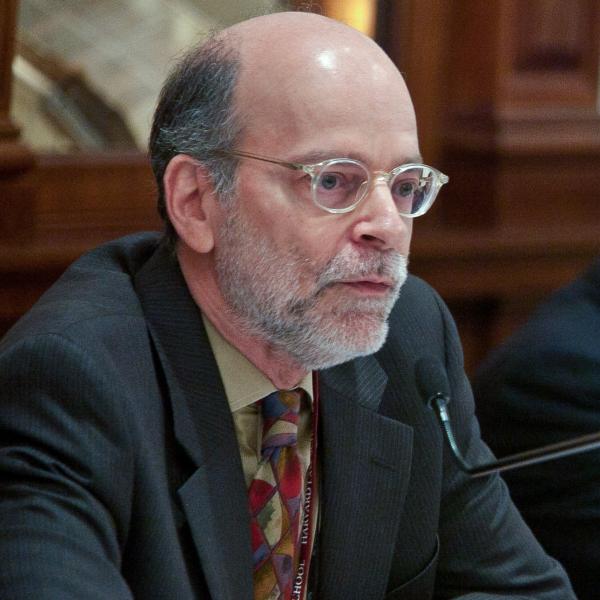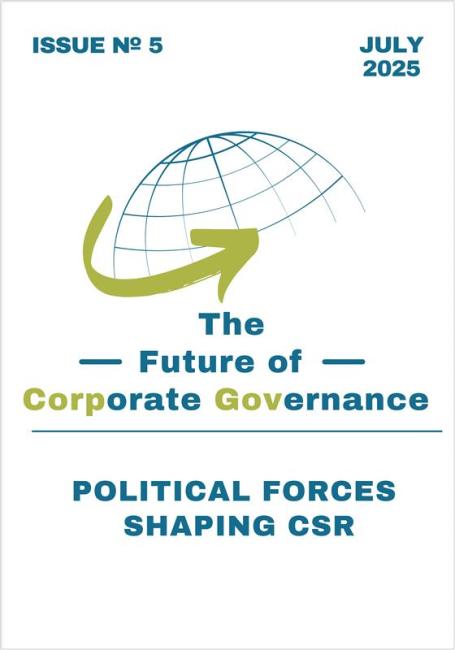
The ECGI blog is kindly supported by

Interview with Mark Roe on How Politics Shapes Corporate Governance and CSR
This interview is based on the research of Professor Mark Roe whose work explores how political structures and institutional frameworks shape corporate governance. It draws on his forthcoming working paper “Corporate Social Responsibility’s Political Instability.”
________________________________
Why has the private sector become a central arena for ESG progress in the U.S.?
The idea of “broken government” is central. Most CSR and ESG goals would be best handled by regulation and taxation. But that’s not happening, or at least not enough has happened. So, activists turn to pressuring public corporations.
Government here can be broken in two ways. It can be broken because it just cannot get basic governing done — due to a general institutional deterioration, to partisanship, or to gridlock. It’s unable to act.
But government could also be broken from the activists’ perspective if it refuses to act due to opposition from interest groups or public opinion. It could be unwilling to act.
For pressure on the corporation for more CSR, it makes a great deal of difference whether government doesn’t act because it’s unable to, or because it’s unwilling to.
If government is unable to act, then private efforts may succeed and endure. But if government is unwilling — because, say, it opposes most ESG goals — then private-sector progress is politically fragile. Government can impede — or reverse — private CSR successes. That’s where we are now.
Is this different from the usual skepticism about CSR?
Yes. There’s long been skepticism that profit-maximizing firms can be highly socially responsible if doing so cuts deeply into profits. And, much of the ESG agenda demands that profit-making enterprises internalize externalities — e.g., pollute less, respect climate change more. Sometimes firms can profit when implementing these goals — by branding themselves for ESG-conscious customers and satisfying employee preferences. But oftentimes going far down this road eventually cuts into profits, impeding firms from going further. And, if one profit-making firm acts responsibly, another can exploit the gap and profit from it.
This political economy idea of broken government poses a distinct and high, or an even higher, hurdle to effective private CSR/ESG pressure. If government doesn’t advance these goals via regulation, rules, and taxes, that failure could be because political forces opposing the ESG agenda won. In that case, the same political forces could also impede — or block — ESG progress through private channels.
Didn’t BlackRock signal a turning point for private CSR around 2015? And it could be revived?
Well, the rise and decline of BlackRock’s CSR support illustrates CSR’s political instability. BlackRock became ESG-friendly in the mid-2010s. How much impact BlackRock had at first is debatable but it certainly was visible. But, yes, signing BlackRock onto the CSR/ESG agenda was a coup for CSR activism.
As BlackRock became more visible and media-worthy, and perhaps had some impact, a sharp political backlash slapped back at it. Political players who disliked BlackRock’s climate policy — like political leaders in Texas, the center of America’s oil industry — accused BlackRock of ignoring its fiduciary duty to return the most value possible to its pension clients, sought to pull investment away from BlackRock, threatened to sue BlackRock, and eventually followed through.
Ultimately, by the 2020s, BlackRock relented. It withdrew from its CSR activity.
The BlackRock CSR rise and fall fits the political instability dynamic I described above: much of BlackRock’s CSR agenda could have been enacted directly — i.e., a stiff tax on carbon and gasoline. But these measures didn’t pass Congress — either because Congress can’t get anything done or, more likely, because entrenched interests and public opinion didn’t support a carbon tax. Oil interests don’t like it. Suburban families oppose it. They built their day-to-day lives around their cars: dropping off the kids at school, commuting to work, and heading over to the mall to pick up the week’s groceries. These political forces opposed both direct carbon taxes and BlackRock’s activism, which sought the same end.
The political bottom-line seems to be this: private CSR/ESG pressure on the corporation cannot gain results that move far from what the political system produces directly.
So it wasn’t just BlackRock losing interest — it was political pressure?
Exactly. That’s what it looks like. Texas led the charge, but other states joined in. BlackRock’s opponents became a near-majority of the U.S. electoral college.
Is Europe different?
Yes, but in a way that bolsters the thesis. Europe has more ESG implementation hard-wired into the corporation. And it does more directly to bolster ESG and CSR, even if not enough to satisfy a dedicated ESG activist, and even if it’s backing off some now. So, in the EU we see more direct legislation that advances the ESG agenda, and more corporate friendliness towards ESG, because the EU polity is more ESG-friendly overall. In the U.S., we get less of each.
Would Milton Friedman say, “I told you so”?
Not really. The political impact is the same for the Friedman program. Friedmanites want to separate the corporation from social policy (unless it’s profitable or legally or morally required). But that separation is not an automatic result or preordained rule, although it sometimes seems that way in the U.S., which has a long political tradition of keeping the public sphere away from the private sphere. If Friedman’s followers prevail, it’s because they succeed politically, either by aligning with dominant interests that benefit from keeping the public away from the private, or by convincing policymakers and voters that their approach is more productive. If they prevail, it’s because they’ve won politically.
Will you be writing more on this?
Yes! A working paper — Corporate Social Responsibility’s Political Instability — should be up on SSRN soon!
_______________
The ECGI does not, consistent with its constitutional purpose, have a view or opinion. If you wish to respond to this article, you can submit a blog article or 'letter to the editor' by clicking here.






